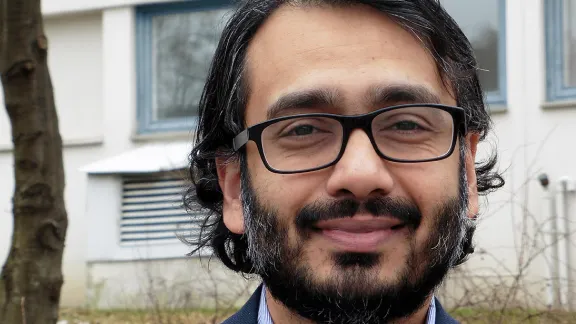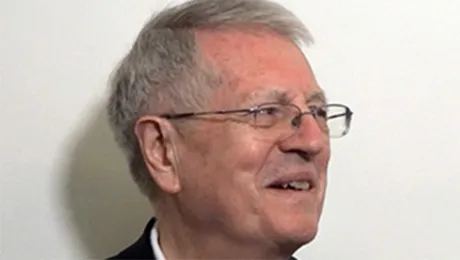
Chaplain Naveed Baig says the purpose of chaplaincy work is to help patients and their relatives find deeper meaning and direction during crisis. Photo: LWF/S. Sinn
Muslim chaplain Naveed Baig looks at the religious role of pastoral care givers, and what they learn about the image of God from their patients. This blog post builds on his presentation at the LWF-led International Christian-Muslim Consultation on Hermeneutics in Oslo, Norway
‘In the beginning of my sickness I thought a lot inside of myself, wrestled with Allah, complained to Him. Asked ‘why me’? Then I thought I was the cause of my sickness. I had committed an offence. Then I sought forgiveness from friends and family and called everyone. That gave me a feeling of satisfaction. I had a direct line to Allah; didn’t think about anyone else. I read Istighfar a lot. (*Hasan, a liver patient, talks about reciting the repentance prayer, Istighfar)
Every religious tradition has a spiritual dimension interwoven with its teachings. In Islamic tradition the spiritual dimension cannot be separated from the divine injunctions and vice versa. Care is an existential need of the living. Binding ‘spiritual’ and ‘care’ together means giving a specific type of care that ‘moves’ the spirit.
For me it is essential that we as caregivers are aware of the needs of our fellow human beings, which can be more than just physical. Questions about meaning, doubt, shame, guilt, powerlessness, forgiveness and hope preoccupy many people and need to be addressed, also within the Muslim populations.
The individualization process in the West has forced minority religious traditions to find means and ways of delivering spiritual care in settings that were previously the responsibility of families and society at large. This institutionalization has resulted in, amongst other things, a renewed and systematic understanding of spiritual care.
For me it is essential that we as caregivers are aware of the needs of our fellow human beings, which can be more than just physical.
On the one hand Islamic tradition including the daily prayer cycle helps patients to cope during personal crises. But there are also signs that the expression of traditional piety each day does not necessarily take into account an individual’s particular situation.
The purpose of chaplaincy work is to help patients and their relatives find deeper meaning and direction during crisis. There is religious language and understanding blended with a world view that tries to replace calamities and difficulties with meaning that should help one to submit oneself to God and God’s plan. In simplified terms, faith is revitalized and gains intensity during calamities. For many, this faith is already deeply rooted in the cosmos of meaning and understanding.
Naveed Baig is a Muslim chaplain at the Rigshospitalet in Copenhagen, Denmark. His presentation at the consultation organized by the LWF in conjunction with the Faculty of Theology, University of Oslo, and the Center for Islamic Theology in Münster, Germany, focused on the images of God in crisis situations.


